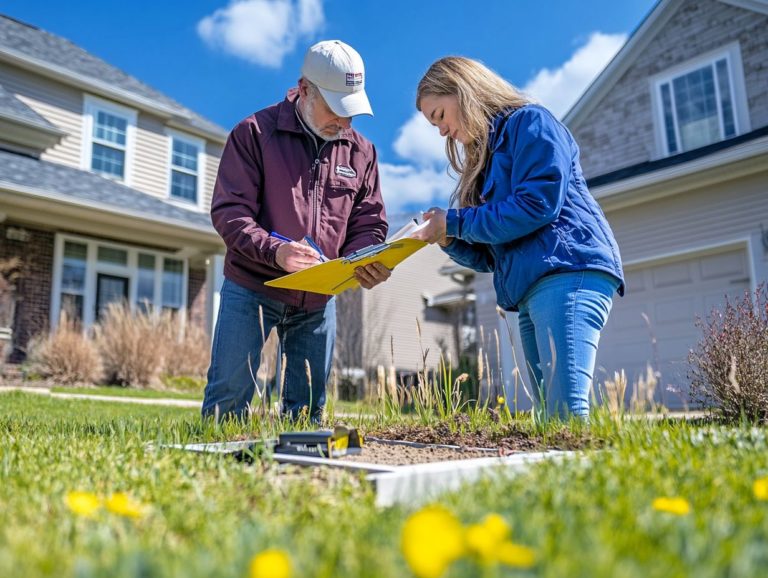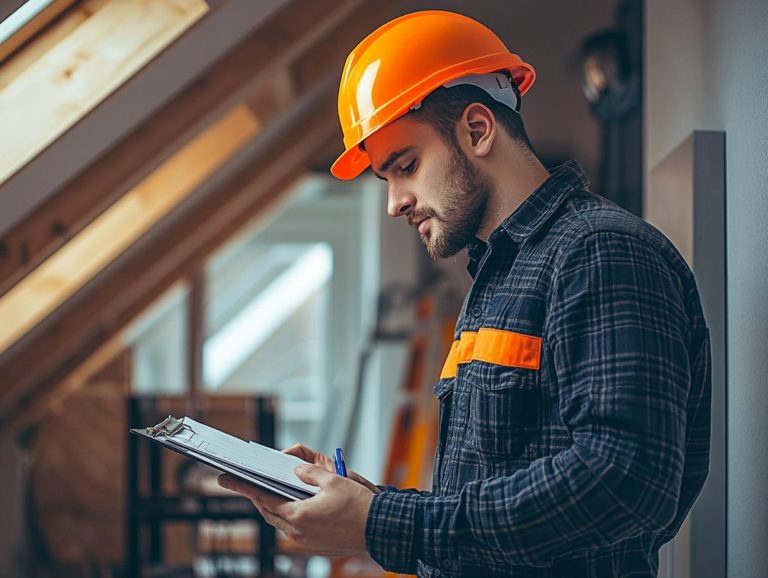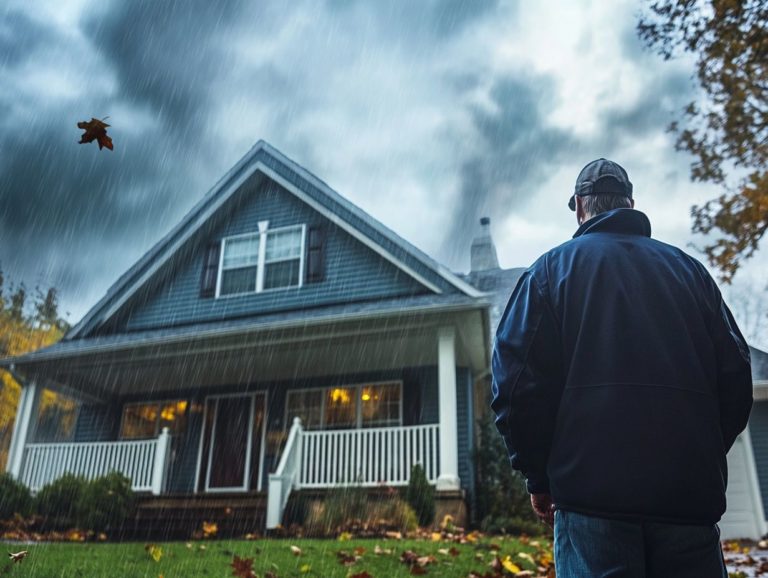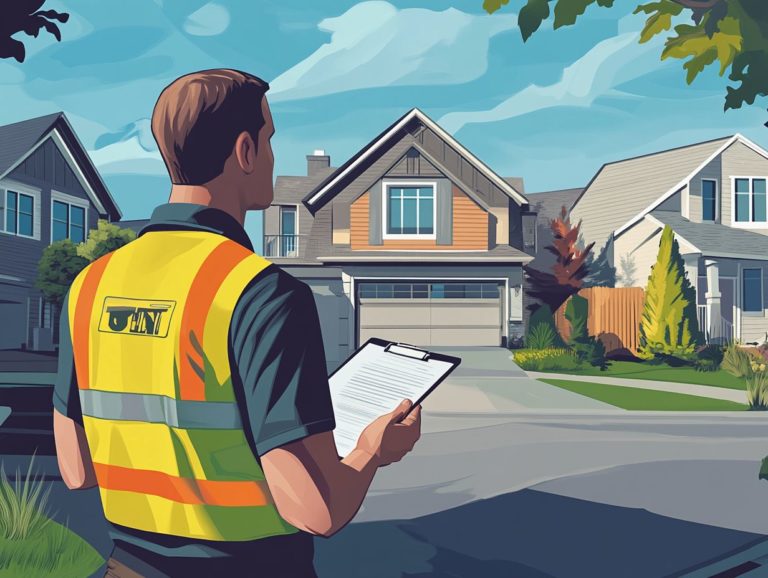How to Communicate Effectively with Your Home Inspector
Effective communication with your home inspector is essential for ensuring a smooth and successful inspection. Get ready to unlock the secrets of effective interactions!
Whether you’re diving into homeownership for the first time or are a seasoned property owner, knowing how to prepare, engage, and address any concerns can truly make all the difference.
This guide will navigate you through each stage of the inspection process from preparation to interpreting the report and determining the next steps to take.
Uncover best practices for asking questions and clarifying findings, empowering you to make informed decisions about your property.
Contents
Key Takeaways:
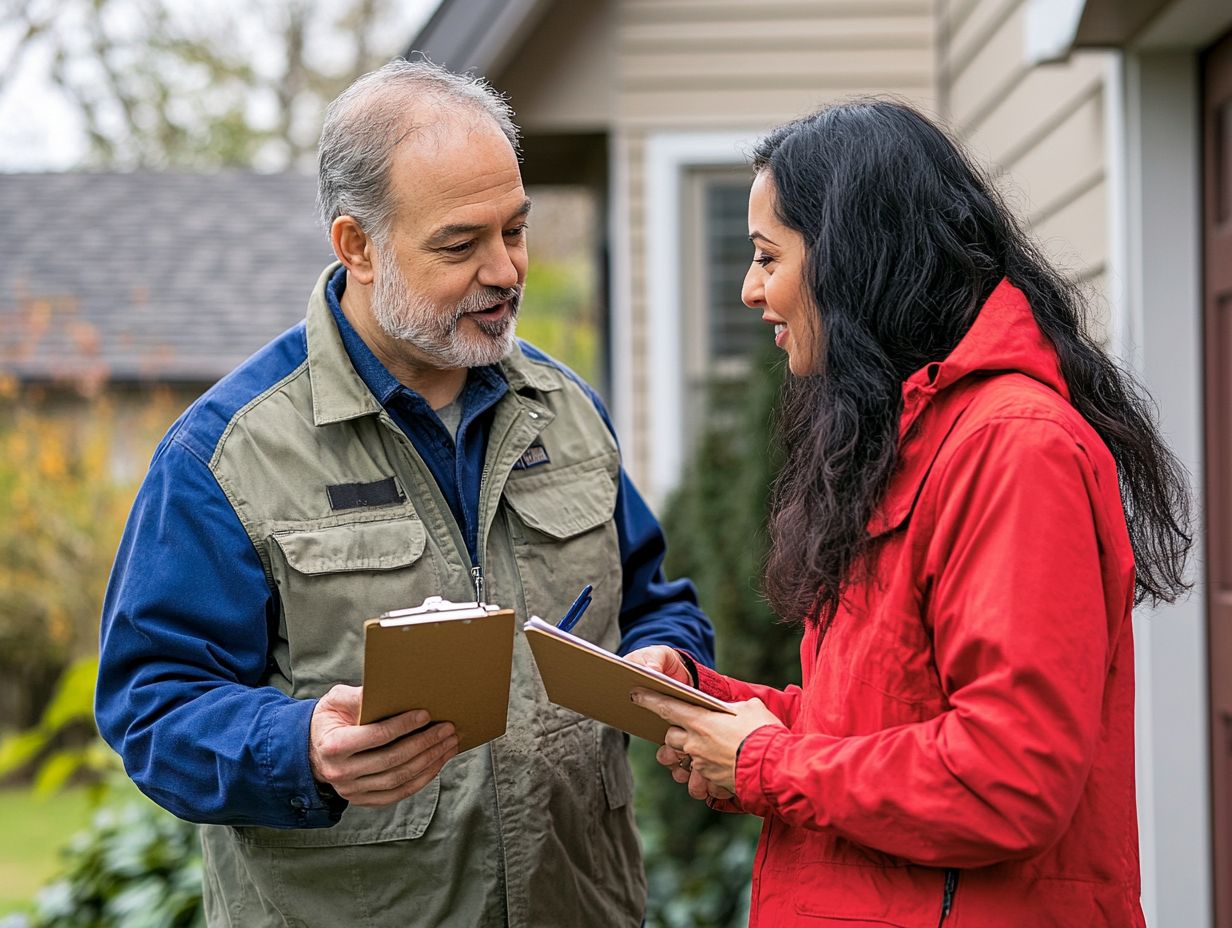
- Effective communication with your home inspector is crucial for a successful inspection.
- Preparation is key know what to expect and have necessary documents or questions ready.
- During the inspection, be respectful, observant, and ask questions or voice concerns professionally.
The Importance of Effective Communication with Your Home Inspector
Effective communication with your home inspector is vital for a successful home inspection journey. This interaction allows buyers and sellers to confidently navigate property evaluations and maintenance needs.
By establishing a clear dialogue, you align your expectations with the inspector’s findings on potential deficiencies and safety hazards. This mutual understanding fosters trust and enhances the overall inspection process, guiding you toward informed decisions regarding necessary repairs or the home appraisal.
Why Good Communication is Key to a Successful Inspection
Good communication skills are essential for a successful home inspection. They allow you to receive comprehensive information about the property’s condition and address concerns about major and minor defects.
When inspectors engage clearly and approachably, they enhance your understanding of the inspection process and its outcomes. For example, visual aids like diagrams or photos can significantly improve clarity when discussing specific issues in the report.
Effective questioning techniques allow inspectors to assess your understanding and address uncertainties right away. This proactive approach cultivates trust and equips you with the knowledge needed for well-considered choices.
Strong communication paves the way for smoother negotiations regarding repairs, ensuring everyone is on the same page about the property’s condition and necessary actions moving forward.
Preparing for the Inspection
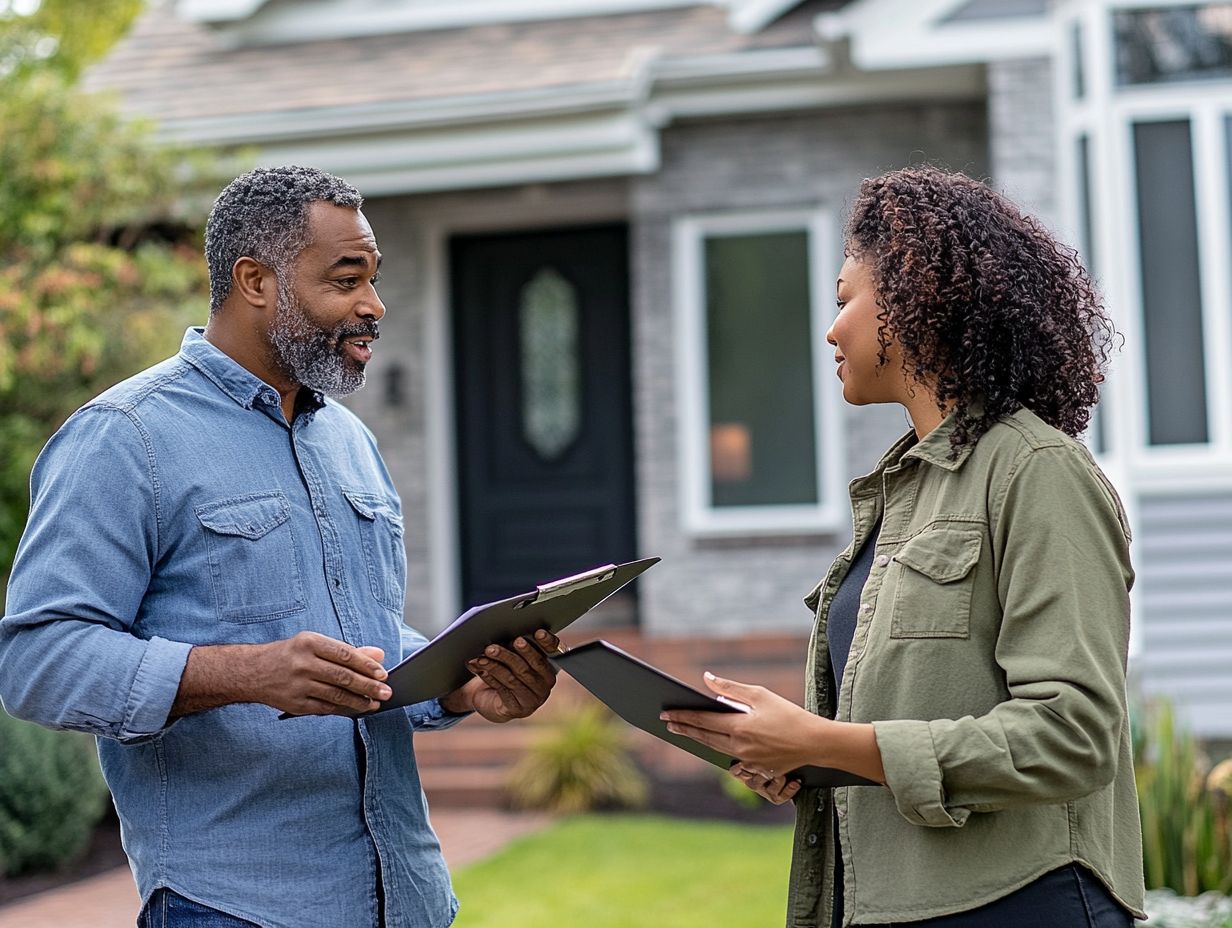
Preparing for a home inspection is crucial, whether you’re buying or selling. It establishes a foundation for a comprehensive property evaluation that reveals maintenance needs.
This preparation ensures that certified home inspectors conduct a thorough inspection, providing valuable insights into the condition of the property.
What to Expect and How to Prepare
During a home inspection, expect a thorough visual evaluation conducted by certified inspectors. They will assess accessible areas and compile an inspection report detailing their findings.
To prepare, ensure all areas such as attics, crawl spaces, basements, and garages are easily accessible.
Inspectors will evaluate structural components, roofing, plumbing, electrical systems, and HVAC (Heating, Ventilation, and Air Conditioning) units, among other critical areas.
Be available to discuss any concerns and provide documentation of past repairs. Remember, the inspection report won t just summarize the findings; it will also highlight any safety issues or necessary repairs.
Familiarizing yourself with standard terms, limitations, and recommendations in the report is crucial. This knowledge enables you to navigate subsequent negotiations or renovations with confidence.
During the Inspection
During the home inspection, embrace best communication practices and learn how to communicate your needs to inspectors to ensure clarity throughout the process.
This approach enables you to ask questions and fully grasp any potential deficiencies noted by the inspector.
Summary
In conclusion, effective communication is the backbone of a successful home inspection. Prepare today for a successful inspection! By understanding the process and engaging with your inspector, you can learn how to make the most of your home inspection and make informed decisions about your property.
Best Practices for Communicating with Your Home Inspector
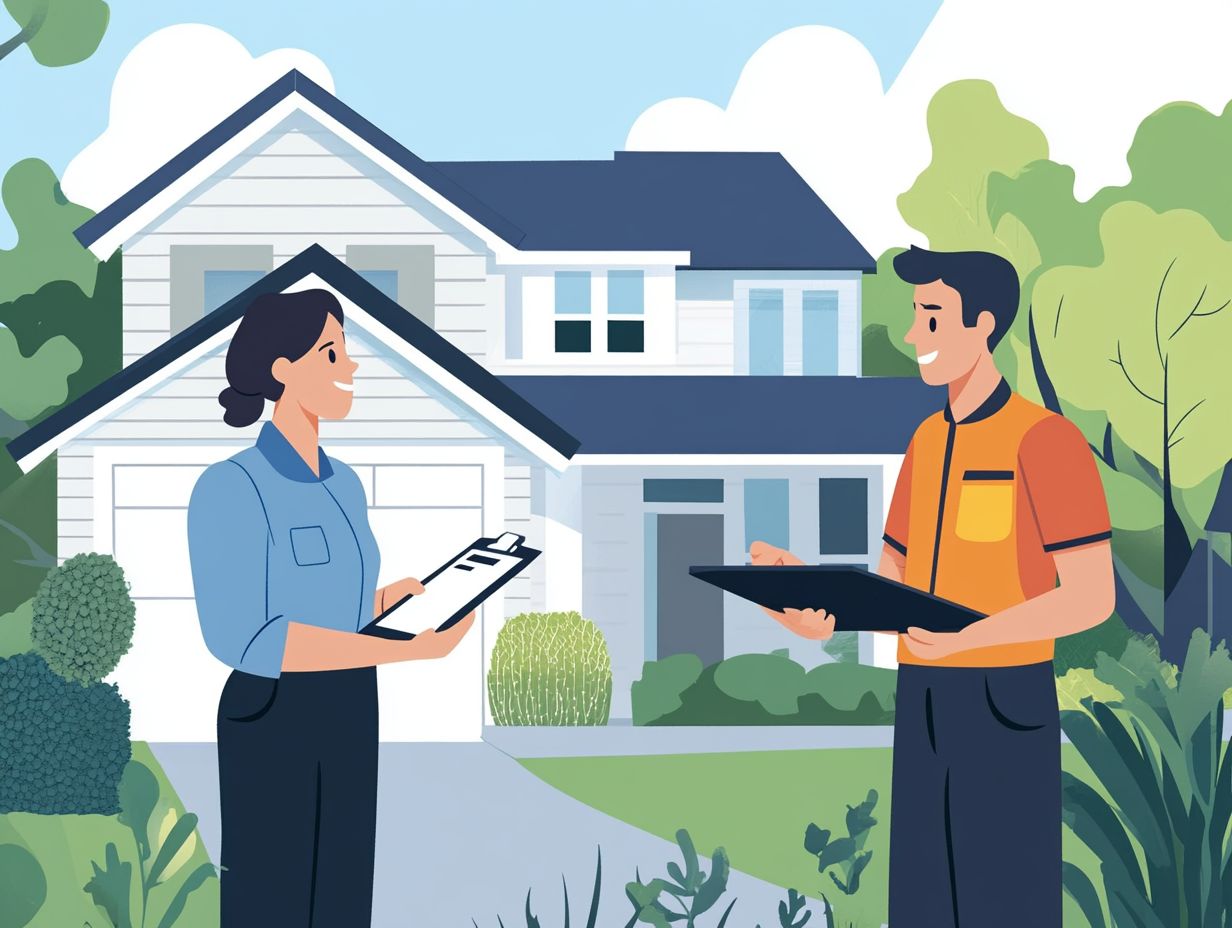
To ensure a positive experience, you should adopt best practices for communicating with your home inspector. This means actively asking questions and voicing any concerns you have about health issues or property conditions.
Engaging in open dialogue allows you to gain valuable insights into the findings during the inspection. When you ask specific questions, you clarify uncertainties and help guide the inspector s focus to particular areas of concern, enabling more detailed assessments.
This collaborative approach creates a comfortable environment for discussing essential topics, from structural integrity to potential hazards. By establishing a rapport, you encourage inspectors to provide personalized advice based on your unique circumstances, leading to a comprehensive understanding of your property’s condition.
Addressing Concerns and Asking Questions
<pAddressing client concerns during the home inspection is essential. This active approach helps uncover safety hazards and significant defects while providing insights into how these issues may affect the property s value and future maintenance needs.
Engaging in this dialogue ensures a thorough understanding of the property, paving the way for informed decisions.
How to Raise Concerns and Get Answers
Raising concerns effectively requires clear communication, especially when seeking detailed information about inspection findings from licensed contractors for potential repairs.
To foster a productive dialogue, start by pinpointing specific areas of concern from the inspection report. It s crucial to ask open-ended questions that encourage contractors to elaborate on the identified issues, promoting clarity and transparency.
When seeking clarification, consider requesting visual aids or examples of common problems, as these can be very helpful. Documenting your conversations and follow-ups nurtures accountability and helps you retain vital information about the home’s condition, enabling you to make informed decisions moving forward.
Understanding the Inspection Report

Understanding your inspection report is crucial it holds key insights about your home. This document contains information that can significantly impact the home appraisal process and align with client expectations about property conditions and necessary repairs.
Interpreting and Clarifying Findings
Interpreting and clarifying findings from the inspection report is essential as it helps distinguish between major and minor defects that could impact the home s value and future maintenance needs.
A meticulous approach to analyzing the report can unveil critical insights into the property’s condition. As a homebuyer, your focus should be on identifying which defects require immediate attention and which can be addressed over time.
By categorizing issues based on their severity and potential impact, you ll be in a stronger position to plan renovations or negotiate with sellers. Engaging with the inspector is crucial; asking clarifying questions enhances your understanding and ensures that any overlooked details are addressed.
This proactive communication is vital for making informed decisions about your future home, leading to a smoother purchasing process.
Following Up After the Inspection
Following up after the inspection is essential for addressing any lingering questions.
Your proactive follow-up can make a big difference in negotiations for repairs and the overall home appraisal process.
Next Steps and Additional Questions
Identifying your next steps after the home inspection involves reviewing the inspection report carefully. Determine any questions you have for licensed contractors about potential repairs.
Take the time to digest the report findings. Highlight areas needing immediate attention or clarification.
It s wise to compile questions that address specific concerns raised during the inspection. This may include inquiries about repair timelines or estimated costs to understand your home s condition fully.
Engaging with qualified contractors is essential now. Their expertise helps interpret the report and suggest practical repair options.
Approach these steps with care to maintain your home s integrity.
Frequently Asked Questions
What is the importance of effective communication with a home inspector? Effective communication is crucial. It ensures all necessary information is conveyed accurately, leading to a thorough inspection and a better understanding of the report. To learn more about maximizing your home inspection experience, check out how to get the most out of your home inspection.
How can I prepare for communicating with my home inspector? Gather all necessary documents about the property and make a list of concerns or questions. It’s also helpful to prepare for a successful home inspection by having all relevant parties present during the inspection.
What should I do during the home inspection to communicate effectively with your agent? Ask questions and voice any concerns you have. Taking notes and pictures to reference later is also helpful.
How can I effectively communicate with my home inspector if I am unable to attend the inspection? It’s important to provide the inspector with all necessary information beforehand. You can also follow up with a phone call or email to discuss findings and ask questions.
What if I don’t understand something my home inspector is saying? Don t hesitate to ask for clarification. A good inspector will explain things in an easy-to-understand way.
What should I do after the home inspection to communicate effectively? Review the inspection report thoroughly. For guidance, learn how to follow up with your home inspector, follow up with any questions or concerns, and keep in touch with your inspector for any future clarifications.


